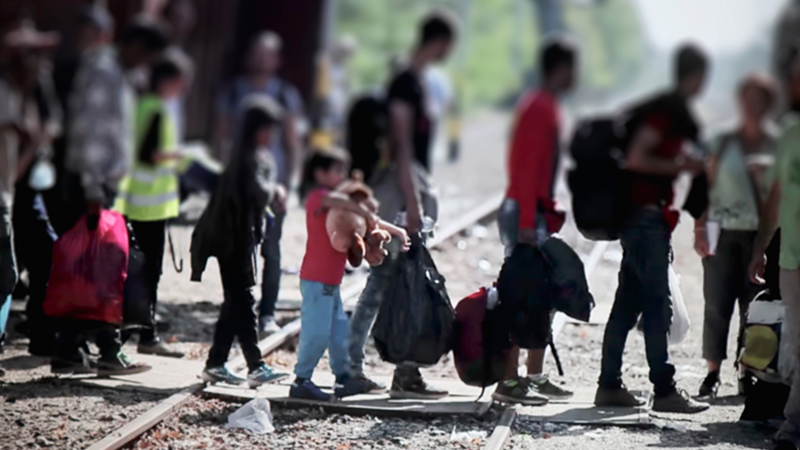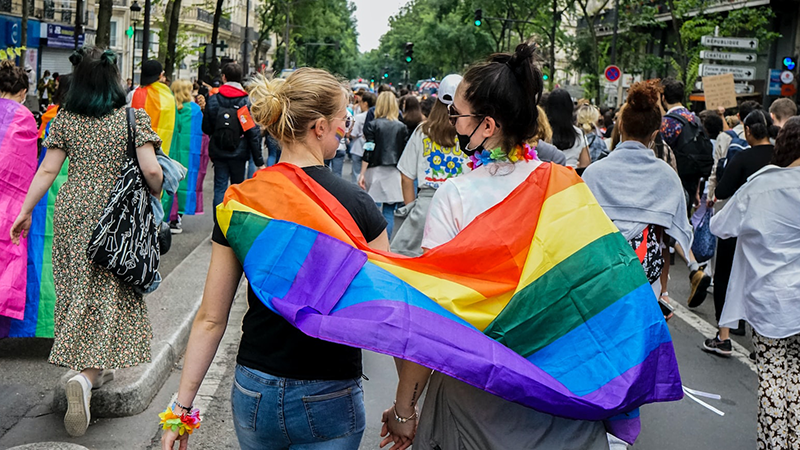
Dimensions, impacts, and opportunities for co-creation
| 13-16 | |
| 4 x 45 min. | |
| The different contexts and interrelationships surrounding globalisation are complex. In the following exercises, we will enable students to grapple and engage with this topic. | |
| Biology Communication Cosmopolitan issues Dialogue Diversity English Ethics/Religion Geography History IT Language Media Education Political Studies Signs Social Studies/Civic Education Social Learning Symbols |

Food in a globalised world
| 13-16 | |
| 4 x 45 min. | |
| The topic of food encompasses issues from development policy relating to labour, responsibility, the environment, and the global use of resources. | |
| Biology Communication Cosmopolitan issues Dialogue Diversity English Ethics/Religion Geography History IT Language Media Education Political Studies Signs Social Studies/Civic Education Social Learning Symbols |

Going global – the garment industry
| 13-16 | |
| 4 x 45 min. | |
| T-shirts, jeans, and more - our wardrobe takes us on a journey through the global garment industry. Both the good and bad included. | |
| Biology Communication Cosmopolitan issues Dialogue Diversity English Ethics/Religion Geography History IT Language Media Education Political Studies Signs Social Studies/Civic Education Social Learning Symbols |

| 12-16 | |
| 6 x 45 min. | |
| This topic helps pupils engage with issues related to climate justice, tells them the stories of climate activists from around the world, and involves them in creating a map of initiatives and campaigns local to them. | |
| Geography Business and economics Science Political Studies Ethics/Religion Social Studies/Civic Education Philosophy Language |

| 12-16 | |
| 3 x 45 min. | |
| This module teaches pupils about the production process behind a smartphone, from the mining of its raw materials and the product’s manufacture to its ultimate destination as electronic waste, and encourages them to explore ways of making it fairer and more sustainable. | |
| Geography Business and economics Political/social studies Ethics/values education |

Refugees and help in escaping danger – past and present
| 14-18 | |
| 3x45 min. | |
| This module looks at why people flee their home countries and who helps them to do so, how, and why. | |
| Biology Communication Cosmopolitan issues Dialogue Diversity English Ethics/Religion Geography History IT Language Media Education Political Studies Signs Social Studies/Civic Education Social Learning Symbols |

Standing up and speaking out against anti-Semitic prejudice and ostracism
| 13-16 | |
| 3 x 45 min. | |
| This module will help pupils explore the phenomenon of anti-Semitism, its impact, and prejudice more generally, as well as their own role in perpetuating prejudices | |
| Social Studies/Civic Education |

This module gives teachers and pupils tools to reflect about the meaning of issues referred to democracy, such as justice, tolerance...
| 10-14 | |
| 11 x 60 min. | |
| This module gives teachers and pupils tools to reflect about the meaning of issues referred to democracy, such as justice, tolerance... | |
| Cosmopolitan issues |

People with disabilities and their experiences of barriers and gateways
| 12-16 | |
| 6 x 45 min. | |
| Full participation in public and social life is a human right, for everyone with and without disabilities. This module includes thinking of disability as a norm, work on the lives of personalities with a disability, giving pupils insights into the lifeworlds of people with disabilities, and learning about the multi-faceted character of a range of disabilities. Pupils will also reflect on processes of labelling and find out about the disability pride movement. | |
| Ethics/Religion Political/social studies History Philosophy Language |

Combating homophobic and transphobic prejudice and exclusion
| 7-9, 12-15 | |
| 4 x 45 min. | |
| The module revolves around typical gender role expectations, and experiences of homophobia and transphobia in day-to-day life. Its intent is to help pupils engage with and reflect on constructed norms around gender and sexuality and to point them to possibilities for action if they experience or witness discrimination. | |
| Political/social studies Ethics/values education Philosophy Psychology |